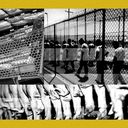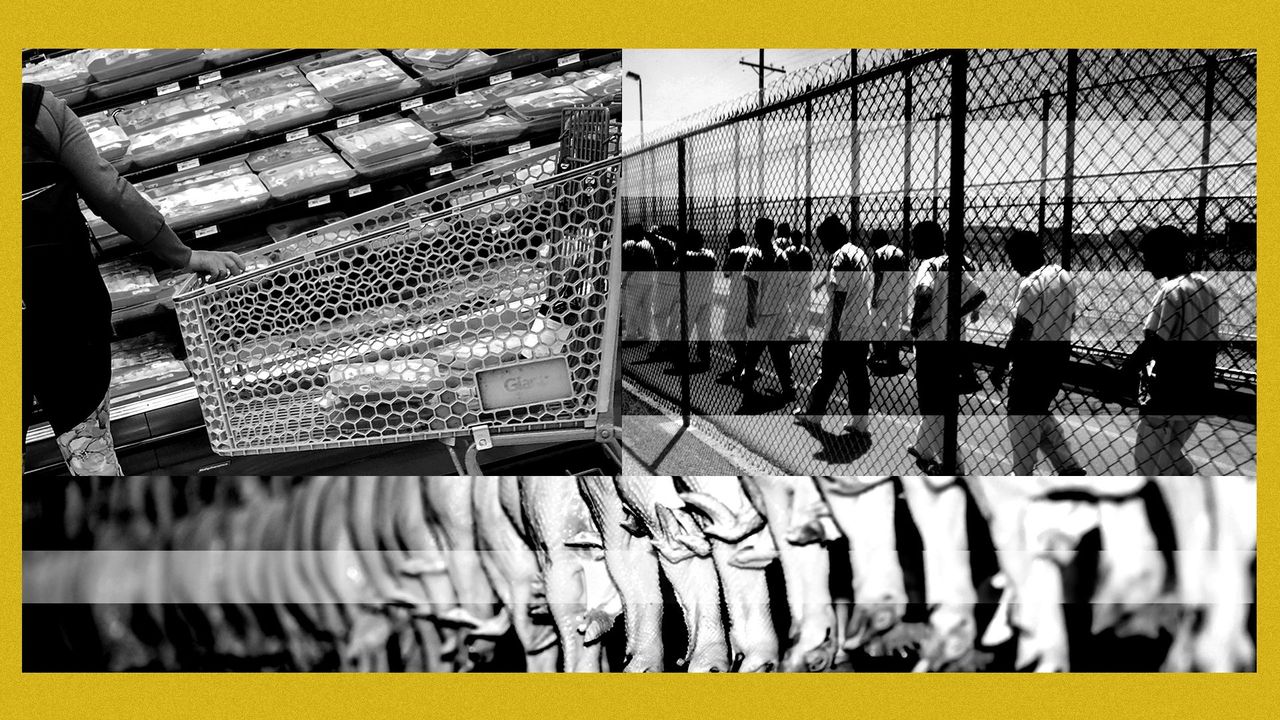How Trump's deportation policies impact the meatpacking industry
Many in the meatpacking industry were happy to see Donald Trump reelected — but are also fearful it won't be able to operate without the workers he may try to deport.
Why it matters: Meatpacking, more than almost any other industry in this country, relies on foreign-born labor, whether documented or not. It would face critical challenges if those workers disappeared due to mass deportations.
- Yet meat-related interests overwhelmingly supported Trump financially in 2024, knowing the potential risks to their business.
The big picture: Meatpacking is dangerous and difficult to staff even in the best circumstances.
- "If you ask anybody on the packing side of things, going back before COVID … no one's going to tell you there's a bigger challenge in the meat supply chain than labor," Ethan Lane, vice president of government affairs for the National Cattlemen's Beef Association, tells Axios.
Zoom in: One oft-cited estimate suggests that 30% to 50% of all laborers in the meatpacking industry are undocumented. Producers will dispute that, but no one disagrees the industry relies on migrant labor.
- "This is a decision by the industry. It's a wink and a nod — this is how they can keep labor costs down," says Debbie Berkowitz, a fellow at the Kalmanovitz Initiative at Georgetown and former OSHA chief of staff.
- Some, like the NC Pork Council, deny that their producers use undocumented labor. But they also concede labor shortages plague the industry, and point to a need for immigration reform to expand visas for laborers.
- The pandemic further exposed how immigrant labor has been used to sustain the industry, with high-profile COVID outbreaks highlighting their vulnerability and the critical role they play.
Zoom out: Trump's team has said their deportation program would (first) target criminals (though an Axios review found that to be a relatively small number.)
- The transition, asked about any plans for undocumented meatpacking workers, reiterated its intent to target "illegal criminals, drug dealers, and human traffickers" in a statement to Axios.
But those who work with undocumented laborers say the mere sight of deportations can have a domino effect.
- "Many of the people in my book, they were or are undocumented, and even if they now have residency … they have family who are undocumented and they're scared," says Alice Driver, whose book "Life and Death of the American Worker" examines the lives of undocumented meatpacking workers.
- Driver and others say the specter of deportations could be enough to tip the industry into crisis, as workers flee or stop showing up to work, even if plants aren't being raided.
- If packing plants are short of labor, that raises another concern: the availability and price of meat.
All-time high prices
Zoom out: Prices for staple meats are already at or near 20-year highs, per the Bureau of Labor Statistics' Consumer Price Index data.
- A pound of fresh, whole chicken that cost $1.36 in Feb. 2020 cost $2.08 last month (+53%), while a pound of 100% ground chuck rose from $4.03 to $5.61 (+39%).
- That's despite most packing and slaughter jobs paying less than $20 an hour, on average, per government data. (The industry says wages are rising, however.)
Context: Trump's tariff plans also threaten to impact crucial export revenue.
- Beef and pork businesses rely on revenue from exports of animal products that aren't part of the American diet but sell well overseas.
- Roy Lee Lindsey, CEO of the NC Pork Council, tells Axios that export value makes up about a third of the price farmers get for hogs today.
Even knowing the threat to their business, the industry got behind Trump.
- Donations to Trump from the livestock industry in the 2024 cycle were nearly double the donations to Kamala Harris, according to OpenSecrets.org data.
- The donors were a broad mix, from large industry trade groups to individual ranches and farms.
Broken communities
Mass deportations also threaten to break up communities that have spent decades building tight-knit bonds through shared workplaces.
- For example: A JBS meatpacking facility in Greeley, Colorado employs about 4% of the town.
- "The problem within the industry is that most packing facilities …. build these types of plants in very conservative, rural communities. I don't know that we're going to have a lot of friends in Weld County," says Kim Cordova, president of UFCW Local 7, representing workers at the plant.
The bottom line: Everyone sees the problem coming, but no one knows what will actually happen.
- "I can't imagine that the meatpacking industry is going to be behind this, behind what Trump does in a business sense," Driver says. "It's going to hit companies hard, it's going to hit consumers hard, because let's find out, who's going to take on that work?"

